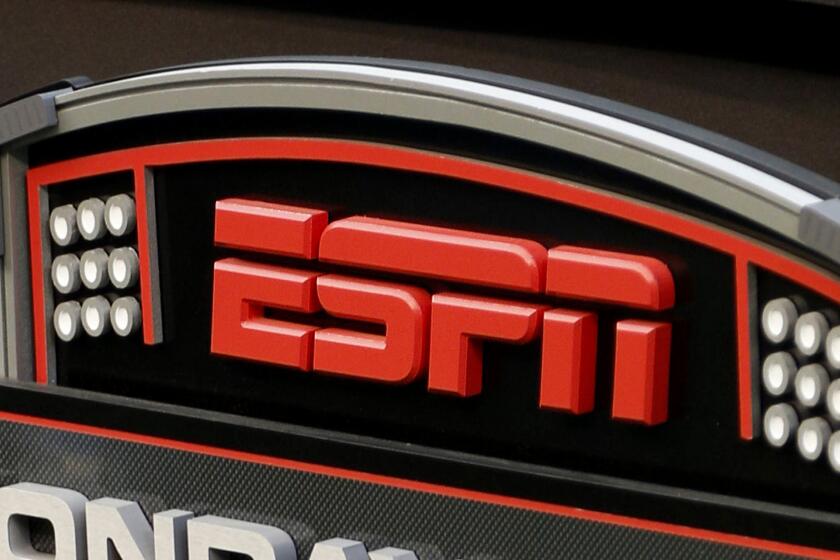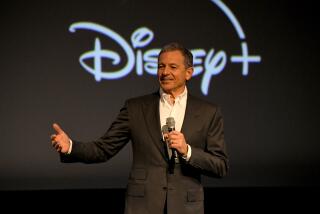Disney CEO Bob Iger calls actors and writers not ‘realistic’ in contract demands

- Share via
As Hollywood actors get ready to join the Writers Guild of America on picket lines, Walt Disney Co. Chief Executive Bob Iger had some harsh words Thursday about the walkouts set to further paralyze the entertainment industry.
Hours before SAG-AFTRA’s national board was set to vote on a strike, Iger told CNBC’s David Faber that the guilds are not being “realistic” in their demands. He said their actions come at the “worst time” as studios struggle to adapt to the disruption of the media landscape, including the transition to streaming video, the decline of traditional TV and an uncertain economic climate.
“It’s very disturbing to me,” Iger said. “We’ve talked about disruptive forces on this business and all the challenges that we’re facing and the recovery from COVID — which is ongoing, it’s not completely back. This is the worst time in the world to add to that disruption.”
Without providing specifics, Iger said the expectations of the writers and actors are “just not realistic” and that their job actions are “adding to a set of challenges that this business is already facing that is quite frankly very disruptive and dangerous.”
Iger’s remarks came shortly after SAG-AFTRA leaders announced that the guild’s negotiating committee had voted unanimously to recommend to the union’s national board of directors that they formally approve a strike, which could begin as early as Friday with picketing likely to take place in Los Angeles, New York and other cities.
The Writers Guild of America walked out on May 2, grinding much of scripted entertainment production to a halt.
SAG-AFTRA and the Alliance of Motion Picture and Television Producers, which represents the studios, remained far apart on key contract issues, said sources familiar with the negotiations who were not authorized to comment and requested anonymity.
Like writers, actors are seeking to boost the residual payments they get when shows are distributed on Netflix and other streaming platforms. Both guilds also are looking for safeguards around the use of AI.
The sports media unit remains profitable and part of Disney. But expect the company to keep a close eye on its financial performance.
Iger said he respects the desire of the guilds to get the best deal for their membership but reiterated, “You also have to be realistic about the business environment and what this business can deliver.”
Iger also revealed that he would consider taking Disney out of the linear TV business as viewers rapidly shift to direct-to-consumer streaming services. Disney owns one of the major broadcast networks — ABC — and cable channels that include ESPN, FX, Nat Geo TV and Freeform.
Iger, who returned as Disney’s CEO in November and has now agreed to stay on through 2026, said he is open to spinning off the cable entertainment networks, ABC and its owned stations, as viewership and revenues continue to decline. The executive has long been pessimistic about the future of linear television, but his remarks are the clearest indication yet that he is ready to throw in the towel.
Iger said he also would consider taking on a strategic partner for sports network ESPN, which remains highly profitable but is plagued by the ongoing trend of consumers bypassing cable and satellite subscriptions for streaming apps.
With every household that cuts the cord, ESPN loses subscriber revenue. Disney executives have already said the future of ESPN is as a direct-to-consumer streaming service. A partner may help accelerate that process.
“If they come to the table with value that enables ESPN to make a transition to its direct-to-consumer offering, then we’re going to be very open-minded about that,” Iger said.
More to Read
Inside the business of entertainment
The Wide Shot brings you news, analysis and insights on everything from streaming wars to production — and what it all means for the future.
You may occasionally receive promotional content from the Los Angeles Times.












